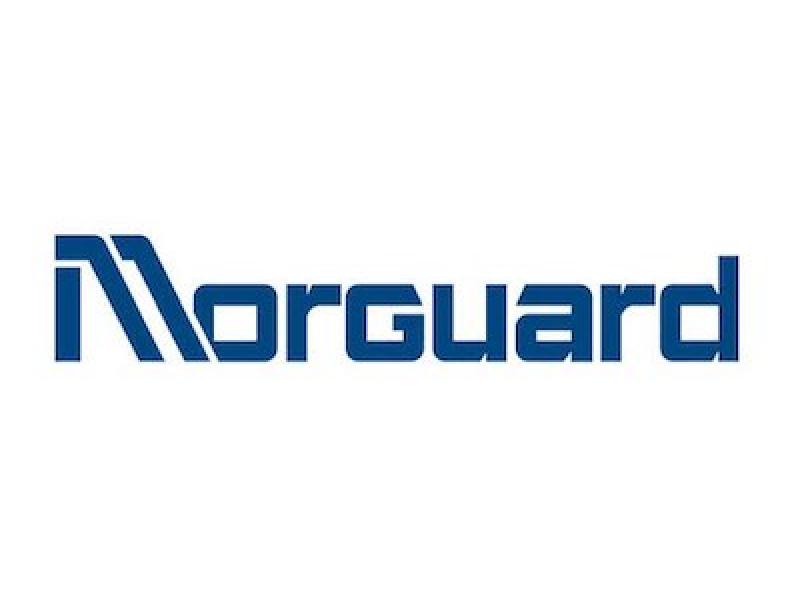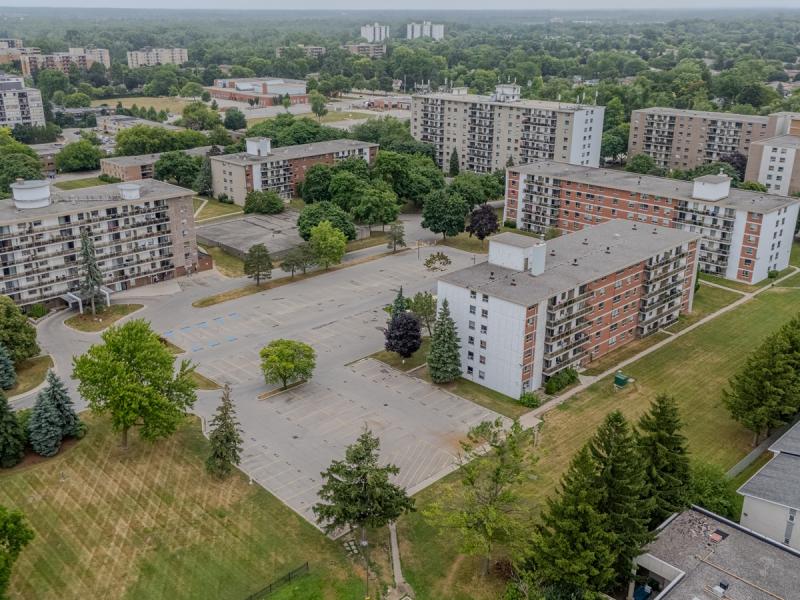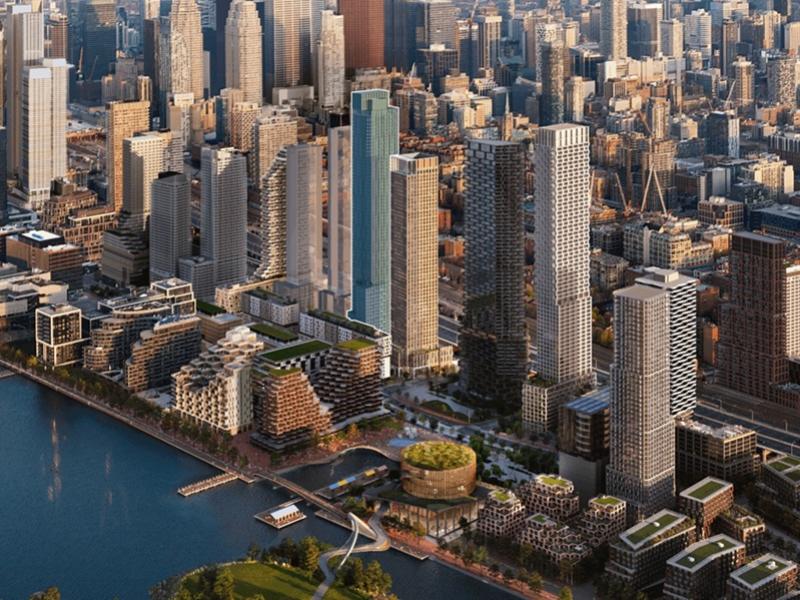
Transaction activity in Montreal’s commercial real estate market was much heavier in the first part of 2022 than the rest of the year, as interest rate increases made a major impact.
Institutional capital was behind most of the largest early-2022 deals, with larger private investors driving the market in the back half of the year, according to Scott Speirs, CBRE’s vice-chairman and practice lead for CBRE Montreal's national investment team.
“The majority of the institutional investors became very selective in the second half of the year and the well-capitalized private investor was able to step in and find opportunities, particularly where we had motivated vendors,” Speirs told RENX.
“As interest rates have risen, well-capitalized investors are in a favourable position because they can finance what is not financeable from a traditional lender and they can also delay financing until interest rates start to come down.”
While the final numbers aren’t yet in for Q4 transactions, Speirs expects them to be lower than during the first three quarters. However, he said a surprisingly high number of retail and suburban office deals occurred during the quarter.
Industrial, multiresidential led the way
Similar to recent years, investors were most focused on industrial properties — followed by multiresidential — in 2022.
“The one difference now is that because interest rates have increased so much it's difficult to make the numbers work for multifamily,” Speirs said.
“There's a significant disconnect between vendor and purchaser expectations in terms of pricing and you don't have the strong rental growth to offset the rise in interest rates. . . .
“Whereas with industrial, particularly short-term-lease industrial, you still have very strong rental growth which allows investors to still pay premium pricing for that asset class.”
Fundamentals for multiresidential are stronger than ever and increased immigration is driving demand, but acquisition activity has noticeably slowed as interest rates have risen.
Investors have also become increasingly focused on newly built apartments that can capture stronger rental growth, according to Speirs.
Macro-economic concerns have also played a role in the slowing office market, the asset class most impacted by the pandemic and economic downturn.
No major distress selling
Speirs hasn’t seen much activity, so far, from distressed building owners being forced to sell.
While office has been the hardest-hit asset class, the majority of major downtown Montreal office properties are owned by well-capitalized institutions.
“Where we may see some distress is with some of the developers who are looking for capital partners to step in, particularly for large-scale condo projects in the downtown core or some some of the multires projects in the suburbs,” said Speirs.
Developers have been further challenged by record-high construction costs, but there are indications those pressures may be easing as the new year begins.
Forecast for 2023
“Given the interest rate environment, I expect slower investment volumes going into the year,” Speirs said in introducing his 2023 forecast.
“I expect that it will pick up in the second half of the year as capital builds, but likely we're going to be in this higher-interest-rate environment for most of 2023 — if not beyond.
“There's going to be a continued disconnect between vendor expectations and purchaser expectations. Demand will be very intensely focused around industrial, with multires being a strong second.
“The asset class that has surprised us over the past 12 to 18 months has been retail.
"Initially during the pandemic it was really grocery-anchored and necessity-based retail that was the focus, but that has now opened up to different types of retail and both private capital and institutions have put this on the radar.”
Consumers are returning to brick-and-mortar stores and Speirs said retail assets didn’t experience the significant capitalization rate compression of industrial and multiresidential, so the variance in terms of pricing expectations hasn’t been as large.
Montreal’s top 10 CRE transactions
Below are Montreal’s 10 biggest commercial real estate transactions of 2022, according to CBRE.
1. A Canderel-led consortium that included FrontFour Capital Group LLC, Artis Real Estate Investment Trust and partnerships managed by Sandpiper Group acquired Cominar REIT and its portfolio of 190 industrial properties, 79 office properties and 41 retail properties for $5.7 billion on March 1. Koch Real Estate Investments LLC and Artis provided preferred equity for the transaction. As part of the deal, Groupe MACH acquired approximately $1.5 billion of Cominar’s retail and office properties while Blackstone acquired Cominar’s industrial portfolio.
2. Centurion Apartment REIT acquired a two-thirds interest in a portfolio of 30 Greater Montreal Area apartment buildings with 3,678 units built between 2016 and 2021 from Habitations Trigone, Fonds de Solidarité FTQ and Montez Corp. for approximately $950 million on Feb. 2. The deal was the largest single multiresidential acquisition ever in Quebec and became even larger when Centurion acquired the remaining one-third stake in the portfolio on April 27.
3. CAPREIT acquired six Greater Montreal apartment buildings with 516 residential suites and three commercial units built between 2017 and 2021 from Cons Properties for $281 million on March 7. Speirs said it set a record for lowest cap rate for a multiresidential deal in Quebec.

4. Broccolini sold two new Amazon-leased distribution centres totalling 883,000 square feet to QuadReal for $252 million on Feb. 1. Speirs said QuadReal had been looking to enter the Montreal industrial market and the buildings off Hwy. 20 near Montreal-Trudeau International Airport and in Coteau-du-Lac were the types of facilities it sought. Broccolini retained a 10 per cent stake in the properties.
5. Blackstone acquired interests in the seven-storey 1100 Atwater office building and the 35-storey mixed-use Air Canada-Altoria tower in Montreal from Kevric Real Estate Corp. for $231 million on March 29. Kevric maintained a very small stake in both properties, which comprise 405,500 square feet of office space, and continued to manage them. CBRE represented Blackstone in the deal and Speirs said the New York City-based alternative investment management company is targeting Montreal. While its initial focus was industrial, it’s also interested in office and multiresidential in the city.
6. TD Asset Management agreed to acquire a 50 per cent share in the 1.24-million-square-foot CF Carrefour Laval regional shopping centre from Cadillac Fairview in December 2019, with the deal done in three tranches. It paid $252.83 million for 16.66 per cent in January 2020, $210.67 million for 16.67 per cent in December 2020 and $222.83 million for 16.67 per cent in January 2022. Cadillac Fairview owns the other 50 per cent stake and manages the facility.
7. BentallGreenOak closed on a seven-building, 990,564-square-foot industrial portfolio in Montreal in an all-cash transaction valued at $212 million on Aug. 30. The properties were acquired from Camco, which sells and distributes clothing to large national brands in Canada and the United States.
8. Allied Properties REIT completed the $121.4-million acquisition of a seven-storey, 145,743-square-foot office building at 700 Rue Saint-Hubert in Montreal from Jesta Group on Oct. 31. The forward purchase was announced in July 2021 as part of the acquisition of the office component of Place Gare Viger. Allied had acquired the 122,643-square-foot Gare Viger office and retail complex and adjacent development land for $128.2 million in the summer of 2021.
9. BMO Life Insurance acquired a 512,070-square-foot industrial building at 4145 Elzear Blvd. W. in Laval from Pure Industrial for $120 million on Oct. 22. It was purpose-built for Dollarama, which signed a 20-year lease for the property.
10. InterRent REIT and Crestpoint each acquired 50 per cent shares of a recently constructed 254-suite apartment community at 8405 Place St-Charles in Brossard, on the south shore of Montreal, from Maître Carré for a total of $109.3 million on June 30.
EDITOR'S NOTE: This article was updated to correct the sale price for the Centurion Quebec apartment portfolio acquisition, due to an error in the original transaction data from CBRE. RENX apologizes for the mistake.










